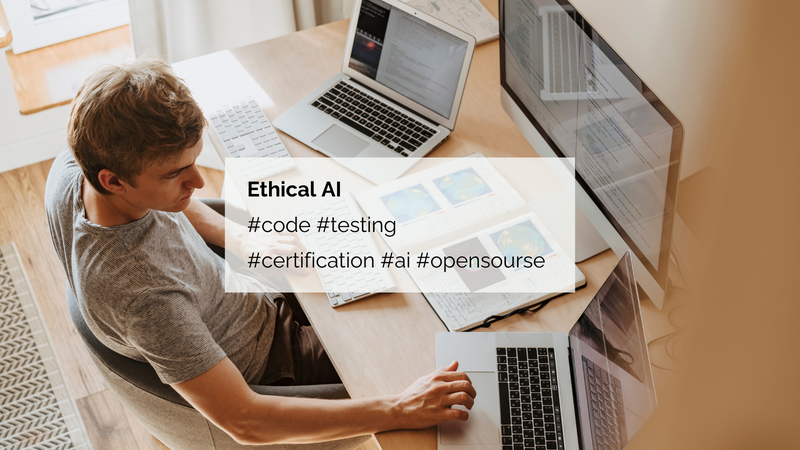The Crucial Role of Human Oversight in Ethical AI Testing

Artificial Intelligence (AI) has rapidly become an integral part of our lives, powering everything from virtual assistants to decision-making systems. As AI systems continue to advance, the importance of ethical AI development and testing becomes paramount. One key aspect of ensuring ethical AI is the involvement of human oversight in testing, both before and after launch. This is not important just for AI builders, but also those who implement and prompt AI with there own settings and information.
The Ethical AI Challenge
AI algorithms are designed to learn from data and make predictions or decisions based on that data. However, the data used to train these algorithms can sometimes contain biases, leading to unintended consequences. For instance, an AI chatbot may inadvertently respond to users in a biased or discriminatory manner. This can happen from previous training or configuration or based on new data added since deployment or configuration.
To address these issues, ethical AI development as well as implementations require proactive efforts to identify and rectify biases and other ethical concerns. This process begins with rigorous testing.
The Role of Human Oversight
Pre-launch Testing
Before an AI system is deployed, it undergoes extensive testing to ensure it behaves ethically and without bias. Human oversight is vital during this phase for several reasons:
- Identifying Biases:
- Human testers can identify biases, stereotypes, and inappropriate responses that might have been learned from training data.
- Evaluating Cultural Sensitivity:
- Testers from diverse backgrounds assess how the AI responds to different cultural contexts, helping to avoid cultural insensitivity.
- Fine-tuning Responses:
- Human oversight allows for fine-tuning responses to ensure they align with ethical standards and community guidelines.
Post-launch Monitoring
Ethical AI development doesn't stop at launch. Continuous monitoring and improvement are necessary. Here's where users come into play:
- User Contributions:
- Encourage users to report any problematic AI responses they encounter. Their feedback is invaluable for uncovering issues.
- Ongoing Testing:
- Maintain a framework for ongoing testing, involving human oversight, to regularly evaluate AI behavior and responsiveness.
Open Build's Ethical AI Testing Framework
At Buildly and at Open Build, we are committed to advancing ethical AI development in every aspect, from implementation, prompt writing and training. We've developed an open-source Ethical AI Testing Framework that provides a structured approach to testing AI systems for biases and ethical concerns.
Human Testing of Responses
Our framework includes comprehensive test plans for human testing of AI responses, covering various biases like gender, cultural, racial, age, and neurodivergent biases. These test plans involve human testers who assess AI responses for fairness, accuracy, and sensitivity.
User Contributions
We value the input of users in improving AI systems. Users can actively contribute by reporting problematic AI responses, helping us uncover and rectify issues.
Ongoing Testing
Ethical AI development is an ongoing process. With our framework, we emphasize the importance of continuous testing to ensure AI systems evolve in an ethical and unbiased manner.
Join Us in Ethical AI Testing
Ethical AI development is a collective effort. We invite you to join our mission by participating in ethical AI testing and contributing to our open-source framework. Together, we can ensure that AI systems are fair, respectful, and aligned with the values of a diverse society. Please help and review the frameowrk and sign on to help by contributing. Ethical AI Framework from OpenBuild
Visit our Ethical AI Testing Framework to access our testing framework and test plans. Your contributions make a significant impact on the development of responsible and ethical AI.
Let's build a future where AI respects and represents the richness of human diversity.



